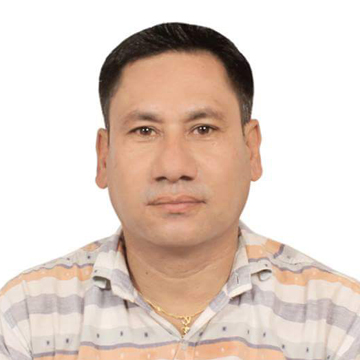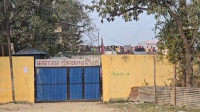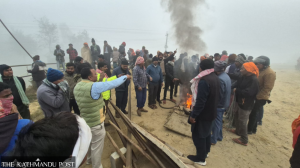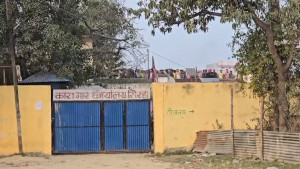Madhesh Province
Drought-hit farmers die hooking wires to mains for irrigation
At least 29 farmers died across Madhesh in a year while using illegal electricity to water their parched paddy fields.
Shiva Puri
At a time when the paddy fields in the Madhesh plains should be lush green, many lie parched. The region is grappling with an acute shortage of rainfall this monsoon, forcing desperate farmers to take matters into their own hands—often to tragic consequences.
In recent weeks, farmers are dying from electrocution while trying to operate electric water pumps to draw groundwater for irrigation. As the monsoon rains fail across southern plains, many farmers in Madhesh province—including Rautahat, Siraha, Dhanusha, Bara, and beyond—have resorted to installing borewells to save their crops.
However, lacking proper knowledge, legal electricity connections and professional support, they are making fatal errors by connecting their pumps directly to live wires—a practice locally known as hooking.
On July 23, forty-two-year-old Moktar Dewan of ward 2 of Katahariya Municipality in Rautahat was electrocuted while trying to install an electric motor in his paddy field. The same day, 40-year-old Rambabu Mukhiya from ward 4 of Madhav Narayan Municipality died under similar circumstances.
According to Deputy Superintendent of Police (DSP) Deepak Kumar Raya, who is also the spokesperson at the District Police Office in Rautahat, both Dewan and Mukhiya had rigged electric wires directly from nearby electricity mains to operate their irrigation pumps. Dewan was rushed to Garuda-based Grande Hospital but was declared dead upon arrival.
Sixty-two-year-old Ramprit Pandit of ward 13 in Golbazar Municipality in Siraha district died while irrigating his field at night in the third week of July. When he did not return home, his son found him lifeless in the early morning, still touching the water pump.
The list goes on. In ward 3 of Hansapur Municipality in Dhanusha, 60-year-old Asarphi Mahara died on July 24 after a short circuit in the irrigation setup electrocuted him.
“He was rushed to the local clinic where he died,” said DSP Barun Singh. There was a similar incident in ward 7 of Suwarnapur Rural Municipality in Bara district on the same day as Dhatu Rayabhar, 57, succumbed to an electric shock while watering his field.
According to the Madhesh Province Police Office, as many as 29 farmers in Madhesh died over the past one year from electrocution while operating makeshift irrigation systems. A total of nine people died of electric shock in Bara, seven in Rautahat and five in Sarlahi. Similarly, four people were electrocuted in Saptari and two each in Dhanusha and Siraha districts. The vast majority of these deaths were linked to unauthorised and unsafe electrical connections.
Normally, paddy transplanting in Madhesh is completed by the end of July. This year, however, only around 60 percent of transplanting has been completed so far in Rautahat district, according to the Agriculture Knowledge Centre in Gaur. Fields that were planted early are showing signs of wilting and uncultivated fields are cracking due to the dry spell. The groundwater level has also dropped significantly, exacerbating the crisis.
Faced with the possibility of crop failure, farmers have rushed to dig bore wells and run electric pumps. “I knew hooking was dangerous, but I had no time to wait for an official electric meter,” admitted Sukh Lal Sah, a farmer from Phatuwa Bijaypur Municipality. “I needed water urgently, so I took the risk. Once planting is done, I’ll install an electricity meter for legal power connection.”
Despite repeated warnings from the Nepal Electricity Authority (NEA), farmers continue to hook wires illegally. “We’ve been telling farmers not to connect naked wires directly to the poles. But many ignore the warning,” said Dhirendra Kumar Yadav, chief of the NEA’s Chandranigahapur branch. “They even wrap bare wires in plastics and carry them through wet fields, creating a perfect setup for disaster.”
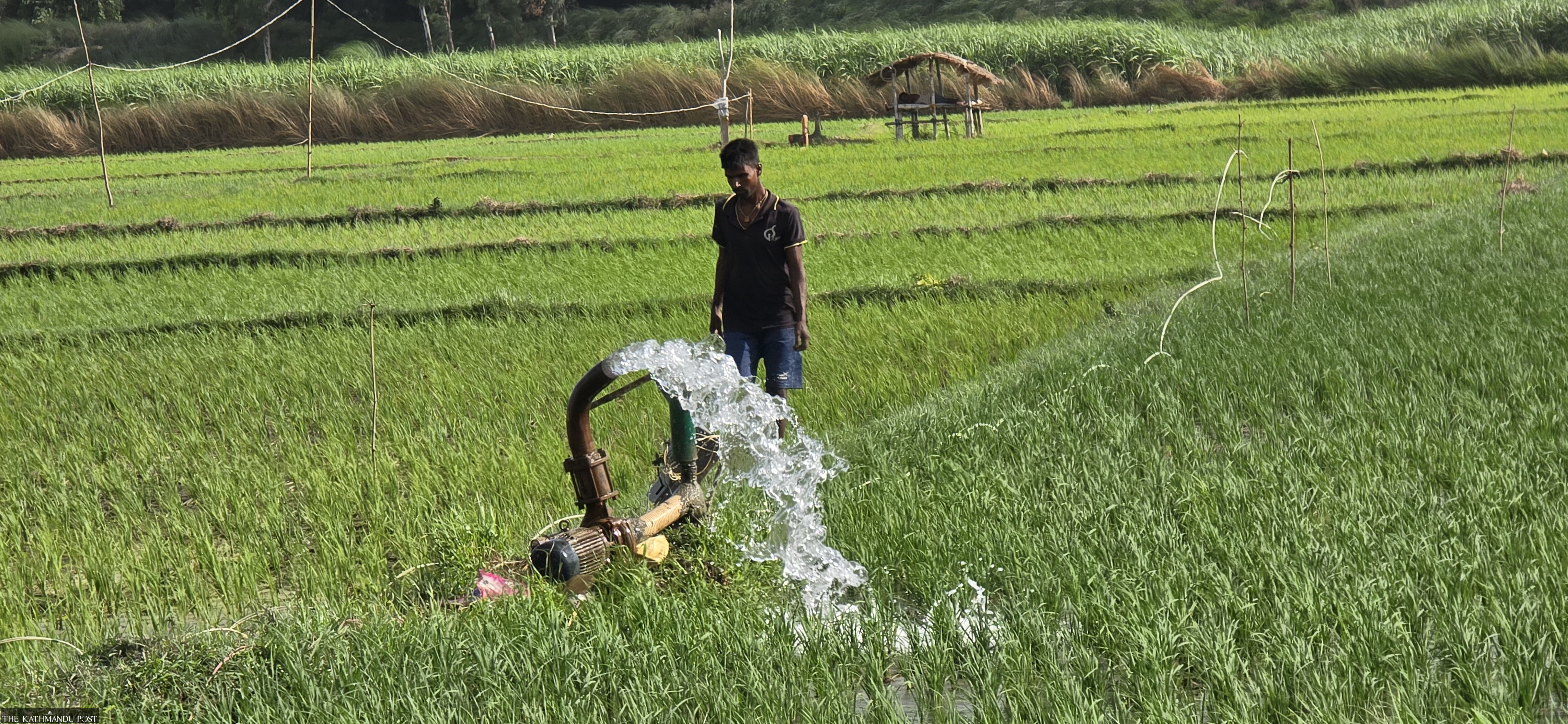
Yadav explained that most illegal connections tap into 400-volt lines situated just below 11,000-volt high-tension wires—extremely risky territory for untrained individuals.
Some local units like Maulapur and Phatuwa Bijaypur municipalities have stepped in to cover farmers’ electricity bills for irrigation. Maulapur paid the NEA nearly Rs40 million in the last fiscal year of 2024-25 while Phatuwa Bijaypur paid over Rs20 million. Yet, the trend of illegal hooking persists.
“It’s quite worrisome. When the municipality is paying the bill, why are farmers still risking their lives by stealing electricity?” said Rambinesh Yadav, NEA branch chief in Maulapur.
In response to the rising death toll, the District Administration Office in Rautahat issued a public notice on July 28 urging farmers to coordinate with the NEA before using electric motors for irrigation. Assistant Chief District Officer Kiran Nidhi Tiwari emphasised that lives could have been saved had farmers followed protocol. “We understand the urgency for water. But safety cannot be compromised,” said Tiwari.
In the event of death due to electrocution, the NEA forms a probe committee—comprising local representatives and administrative officials—to determine whether there was negligence on its part. If the NEA’s negligence is established, the authority pays Rs500,000 in compensation. Between 2018 and 2023, thirty-eight families across eight Madhesh districts received compensation. Most deaths, however, are blamed on user negligence and not all families qualify for compensation.
Families also get compensation from the NEA for animals killed by electric shock—Rs15,000 per ox and Rs20,000 per buffalo. However, compensation does little to ease the suffering of families who have lost a bread-winner.
Critics argue that NEA’s outreach efforts are insufficient. While the authority organises annual awareness rallies during electricity safety week, its village-level awareness programmes are minimal.
“Lack of sustained community-level awareness campaigns is glaring. You can’t just blame the farmers when institutional support is so patchy,” said a local civil society activist in Rautahat.
According to the data provided a year ago by the Madhesh Province Police Office, a total of 449 people have died of electric shock in Madhesh Province over the past five years. Most of the incidents were caused due to electric short-circuit in electric water pumps.




 10.12°C Kathmandu
10.12°C Kathmandu